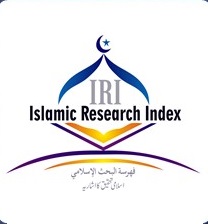Masculinity in Islam: Exploring the Dynamic Shift in Gender Roles in A Postmodern Context
DOI:
https://doi.org/10.58932/MULF0020Keywords:
Islam, postmodernism, Islamic masculinity, gender rolesAbstract
This research investigates the evolving gender roles in the light of Islam, focusing on the understudied and much-neglected concept of masculinity in the context of postmodernism. Masculinity in Islam refers to men being the sole providers, breadwinners, and protectors of the family, whereas postmodernism acknowledges diverse and malleable expressions of masculinity. This study employs a multi-dimensional approach, analysing Islamic scriptures, historical perspectives, and ongoing discourse on gender roles, guided by postmodern principles and Islamic beliefs. It analyses whether Islam accommodates reinterpreted, newly constructed concepts of masculinity within postmodern discourses and how Muslim men should navigate tensions between traditional Islamic roles assigned to them and new approaches. Additionally, it delves into the influence of contemporary societal changes on shaping modern Islamic masculinity. By doing so, this study makes a valuable contribution to the wider discourse on gender, particularly masculinity, in Islam under the postmodern lens. The significance of these findings lies in their potential to promote intercultural dialogue, challenge stereotypes, and foster gender equity within Muslim communities.
References
Arat, Y. (2010). Religion, politics and gender equality in Turkey: Implications of a democratic paradox? Third World Quarterly, 31(6), 869-884.
Arat, Z. F. K., & Hasan, A. (2018). Muslim masculinities: what is the prescription of the Qur’an? Journal of gender studies, 27(7), 788-801.
Ayubi, Z. (2020). De-Universalising Male Normativity: Feminist Methodologies for Studying Masculinity in Premodern Islamic Ethics Texts. Journal of Islamic Ethics, 4(1-2), 66-97.
Badawi, J. A. (1995). Gender equity in Islam (Vol. 2). by IDM Publications.
Bala, H. (2010). Socio-economic status and role of woman in Islam towards gender equality. Gender and Behaviour, 8(2), 3143-3151.
Berger, M. T., & Guidroz, K. (2010). The intersectional approach: Transforming the academy through race, class, and gender. Univ of North Carolina Press.
Crenshaw, K. (2017). On intersectionality: Essential writings. In: The New Press.
Daulay, E. (2017). Gender Roles (Statuses) and Indonesian Wowan. VISION, 11(11).
De Sondy, A. (2015). The crisis of Islamic masculinities. Masculinities: A Journal of Identity and Culture(4), 111-116.
Hughes, J. J., & Dvorsky, G. (2008). Postgenderism: Beyond the gender binary.
Moghadam, V. M. (1991). The reproduction of gender inequality in Muslim societies: A case study of Iran in the 1980s. World Development, 19(10), 1335-1349.
Ouzgane, L. (2003). Islamic masculinities: introduction. Men and masculinities, 5(3), 231-235.
Phillips, D. A. (2006). Masculinity, male development, gender, and identity: Modern and postmodern meanings. Issues in Mental Health Nursing, 27(4), 403-423.
Radzi, N. S. M., Hamid, B. D. H. A., & Bakar, K. A. (2018). The discursive construction of modern masculine identities in contemporary Malaysia. GEMA Online Journal of Language Studies, 18(3).
Ramli, M. (2013). Postmodernism approach in Islamic jurisprudence (fiqh). Middle-East Journal of Scientific Research, 13(1), 33-40.
Rosen, R., & Sluiter, I. (2017). Andreia: studies in manliness and courage in classical antiquity (Vol. 238). Brill.
Rossetti, J. (2001). Postmodernism and feminist economics. In Post-Modernism, Economics and Knowledge (pp. 321-342). Routledge.
Saleh, S. (1972). Women in Islam: Their status in religious and traditional culture. International Journal of Sociology of the Family, 35-42.
Siraj, A. (2006). The Islamic concepts of masculinity and femininity. University of Glasgow (United Kingdom).
Siraj, A. (2013). “Men are hard… women are soft”: Muslim men and the construction of masculine identity. In Masculinities in a global era (pp. 101-116). Springer.
Šnele, M. S., Todorović, J., & Komlenić, M. (2020). Gender Roles and dimensions of family functioning as predictors of subjective well-being in men and women.
Sulistyawan, A. Y., & Nurfaidah, S. S. (2020). Gender construction in Islamic perspective. Ijtimā iyya Journal of Muslim Society Research, 5(1), 47-56.
Wahl‐Jorgensen, K., & Ye, W. (2015). Gender and politics. The International Encyclopedia of Political Communication.
Wood, A. T. (2023). Confucianism and Social Structure.
Downloads
Published
How to Cite
Issue
Section
License
Copyright (c) 2023 South Asian Journal of Religion and Philosophy (SAJRP)

This work is licensed under a Creative Commons Attribution-NonCommercial 4.0 International License.









